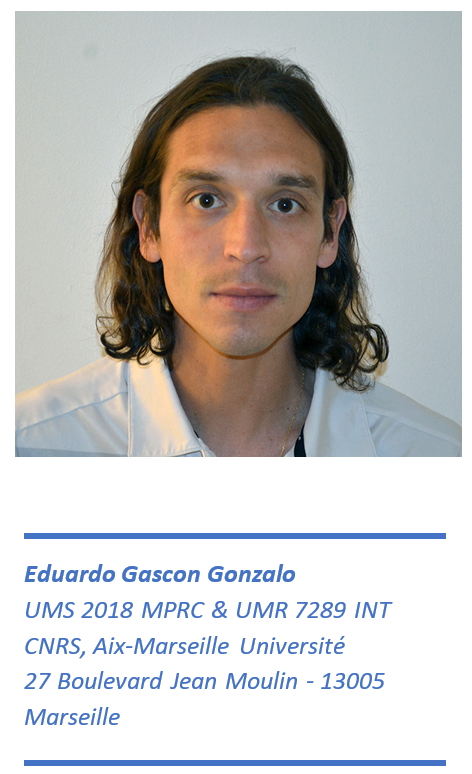 Rochelle Ackerley, PhD :Perspectives on the function of human touch: why we need it and how we can change it
Rochelle Ackerley, PhD :Perspectives on the function of human touch: why we need it and how we can change it
"We have gained much knowledge in recent years about the mechanisms involved in human touch, from the peripheral encoding of touch to its central interpretation. When most people think of touch, they think about the discriminative, conscious aspects, such as where it happens, for how long, and other sensory factors like roughness. Such information is encoded and relayed by fast-conducting myelinated mechanoreceptive afferents. However, many studies investigate positive affective touch (pleasant touch) and we know that a specific class of slowly-conducting mechanoreceptor in the skin codes such gentle, moving touch optimally. The input from these receptors, so-called C-tactile (CT) afferents, is thought to underlie the pleasant and emotional aspects of touch, such as in social and affiliative touch between friends and family". https://somatosense.fr/rochelleackerley
 François Gonon, PhD : Ethics of communication of neuroscience research to the general public
François Gonon, PhD : Ethics of communication of neuroscience research to the general public
"From 1974 to 2008 I studied the neurotransmission mediated by dopamine in the brain of rats and mice. In this research field I published 96 scientific articles in peer-reviewed international journals (including Nature , J. Neuroscience and PNAS ). I collaborated as principal investigator with several foreign researchers in prestigious universities. In 2007 I realized that there is often a huge gap between Neuroscience findings and their covering by mass medias. Since then, I decided to investigate the mediatization of Neuroscience researches. In the field of Science Communication I already published two studies as principal investigator and ten as senior author in peer-reviewed international journals as well as three opinion article. Two of them have been echoed by newspapers ( The New York Times, The Economist, Le Monde, Le Figaro )".
Dumas_Gonon_2025.pdf; Gonon_2024.pdf; Gonon_ESPRIT_5.pdf
 Jean-Michel Revest, PhD : Physiopathology & therapeutic approaches of stress-related diseases
Jean-Michel Revest, PhD : Physiopathology & therapeutic approaches of stress-related diseases
Jean-Michel Revest completed his Ph.D. in Cellular and Structural Biology and Microbiology (January 1998) at the University of Marseille (Luminy). He joined the Imperial Cancer Research Fund (ICRF-Cancer UK- London) as a postdoctoral fellow to learn gene knockout technology by homologous recombination and to work on molecular signaling pathways. He obtained a tenured position at CNRS in 2001. Since he has joined the Neurocentre Magendie in 2001 in Bordeaux in the team directed by Pier Vincenzo Piazza, he started developing several models of inducible transgenic mice. Then he focused its research to understand the molecular signaling cascades underlying the beneficial/deleterious effects of steroid hormones (e.g. glucocorticoids) on memory and the inhibiting effect of neurosteroid pregnenolone on CB1-dependent behavioral effects, notably the harmful effects of THC (cannabis active principle) and of the cognitive deficits impairment in Down Syndrome (Trisomy 21). From this research also emerged several patents followed by the co-foundation of the Biotech Aelis Farma with Drs. Pier Vincenzo Piazza, Monique Vallée, Giovanni Marsicano and Daniela Cota. Since 2018 he is leading the team “Physiopathology and therapeutic approaches of stress-related diseases” at Bordeaux (France). https://www.bordeaux-neurocampus.fr/en/staff/jean-michel-revest/
 Eduardo Gascon Gonzalo, PhD : Molecular Mechanisms of Social Cognition
Eduardo Gascon Gonzalo, PhD : Molecular Mechanisms of Social Cognition
“Humans exhibit a social behavior repertoire of staggering complexity. We are interested in identifying social networks driving specific prosocial behaviors such as food sharing or altruism as well as unravelling the control and plasticity of such behaviors at the molecular level. For that purpose, we are combining different experimental models (in vitro and in vivo work with rodents, marmosets, and humans) and a palette of techniques ranging from behavioral testing, single-cell transcriptomics or genome-editing in vivo.
Epigenetic mechanisms are important regulators of brain adaptations to environmental modifications. Among them, microRNAs, a class of short non-coding RNAs, have attracted much research attention. Over the last 10 years, we have systematically investigated which microRNAs are deregulated in different physiological and pathological context and investigated how their expression levels impinge on target genes and network activity. We have also generated a number of novel tools (e.g. for in vivo manipulation of specific miRNAs in precise brain networks) which will help us further understanding the function of brain microRNAs.” http://www.int.univ-amu.fr/spip.php?page=equipe&equipe=mirCOS&lang=fr
 Marie-Pierre Moisan, PhD : Micronutrients and Neurophysiological Consequences of Different Diets
Marie-Pierre Moisan, PhD : Micronutrients and Neurophysiological Consequences of Different Diets
“In addition to being a risk factor for metabolic and cardiovascular diseases, obesity is now known to affect brain function. Obesity has been associated with a high prevalence of cognitive dysfunctions that frequently evolve in neuropsychiatric disorders. Our team found in rodents that the consumption of an obesogenic diet during adolescence leads to stronger deficits in hippocampal plasticity and hippocampal-dependent memory than similar consumption at adulthood, stressing the vulnerability of this developmental period. Nutritional strategies are developed to prevent these memory alterations.”
 Caroline Strube, PhD : Research Integrity and Ethics
Caroline Strube, PhD : Research Integrity and Ethics
“After 3 years as a doctoral student, followed by two years as a post-doctoral fellow in the United States, I obtained a tenure position at CNRS in late 1995.
During my first 15 years as a researcher (1990 - 2005), I contributed to the understanding of the mechanism of excitation-contraction coupling and calcium homeostasis in skeletal muscle through 16 original publications, 11 of which were as first or last author. During the next ten years (2006 - 2016), my research focused on the characterization of glutamatergic neurotransmission and ozone effects in the nucleus tractus solitarius with 6 original publications including 3 in responsible position. During this period I was also involved in institutional actions, in particular with two mandates at the "comité national de la recherche scientifique", of which the last 4 years as scientific secretary and co-animator of a working group "ethics and fraud". At the end of this mandate, in 2016, I decided to commit myself to the promotion of research ethics and research integrity. I have served as the ethics and research integrity referent for the AMU doctoral college from 2018 to 2020, and I became a member of the CNRS Research Integrity Office in early 2019. Within this framework, I have not only a mission of investigating allegations of fraud of biology, but also of implementing training and awareness actions on research integrity.”
